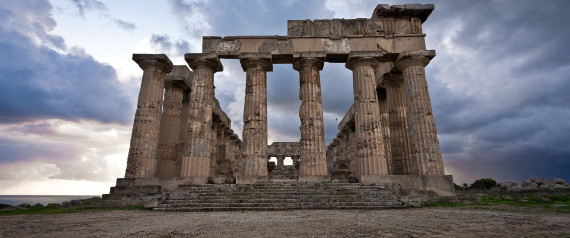I had little experience with the classics before taking Professor Robert Wallace’s class, Ancient Athens: Democracy, Drama, and Civilization. By the end of the first lecture, however, I was hooked.
To say that these lectures were fantastic would be an understatement. Professor Wallace weaved from text analysis to historical data beautifully, often stopping to note how evocative a passage or art piece was. The hour and twenty minute lectures flew by, and I had to constantly remind myself to take notes rather than just listen and enjoy Professor Wallace’s teaching of history.
The goal of the class was to gain a clear picture of what life was like in ancient Athens by examining primary sources by Aristophanes, Sophocles, and Plato. In lecture, we critically analyzed these plays in their social, economic, and political context. This gave each plot an entirely new sense of reality and our picture of history a new outlook.
We also gained an understanding of both the Peloponnesian and Greco-Persian wars via the histories of Herodotus and Plutarch. More interesting, though, was the insight we gained on the authors themselves based on their reporting of history. Through this meta-historical analysis, we learned about the political biases that existed at the time.
Something that I did not expect but was nonetheless thrilled by was how Professor Wallace related the social constructs of Athens to the way society functions today. We learned fun facts like the origins of superstitions, why age differences exist in relationships, and even the history of curse words. Even the gods and goddesses of the ancients provided background on what people value.
It was exciting to witness Professor Wallace’s open admiration for how the ancients ran their government. Almost as if to describe a Utopia, lectures on ancient Athenian democracy gave an idyllic view of governance by the people. Society, Professor Wallace described, was prosperous, intellectual, and utterly blissful.
Though I only first took this class to fulfill my Literature and Fine Arts distribution requirement, I soon became sincerely curious to learn more about ancient Greek civilization. It encouraged me to go on to take courses on the Renaissance, (a renewal of the classics,) and ultimately pursue a minor in history. Professor Wallace’s clear passion for the subject and enthusiastic teaching methods made this class not only engaging, but also immersive.
In the words of Thucydides, “History is Philosophy teaching by example.” Robert Wallace’s class certainly showed me that there could be no better example than the Greeks.
–Sarah Miller
Photo Source: Huffpost Green.
